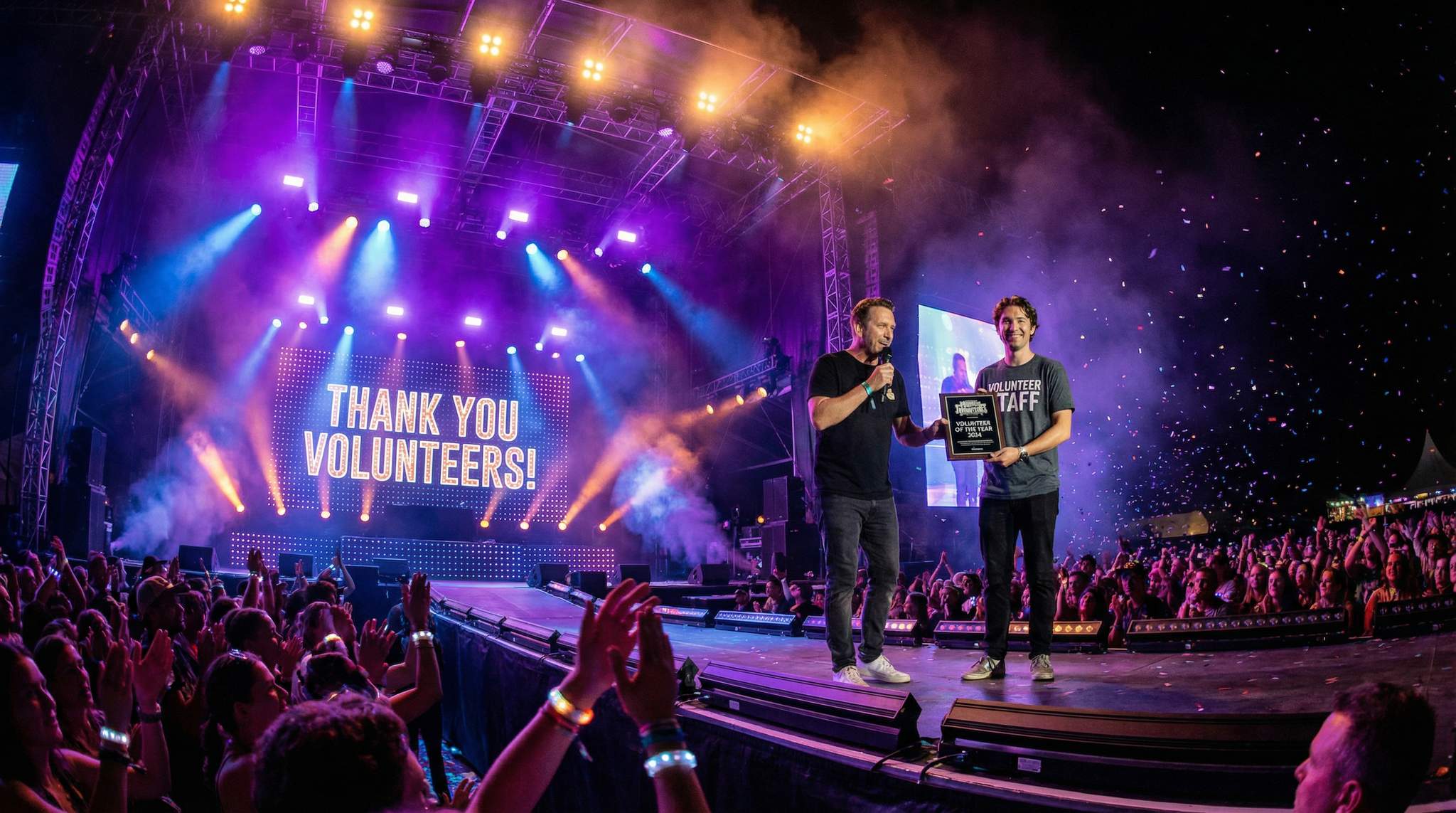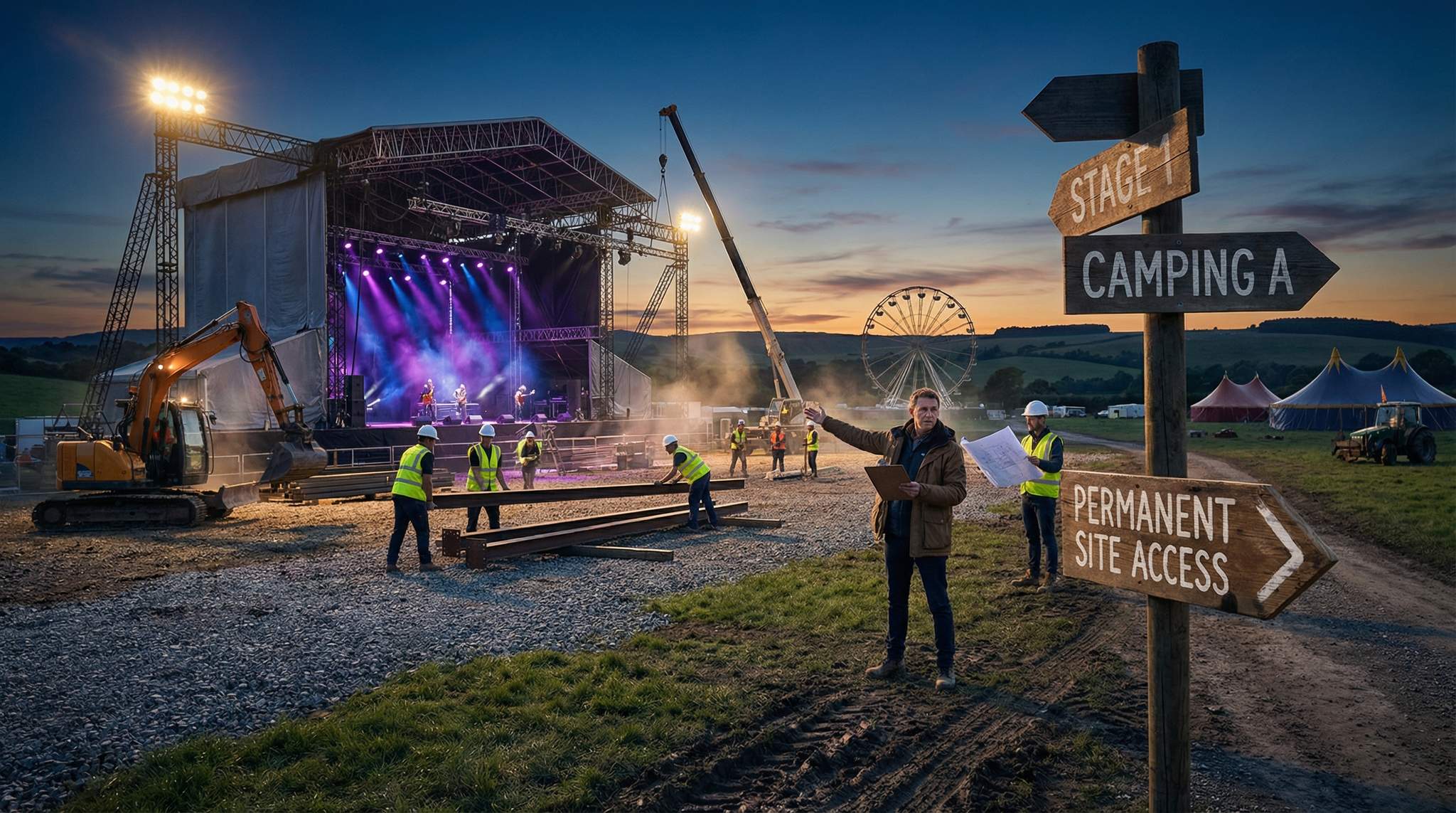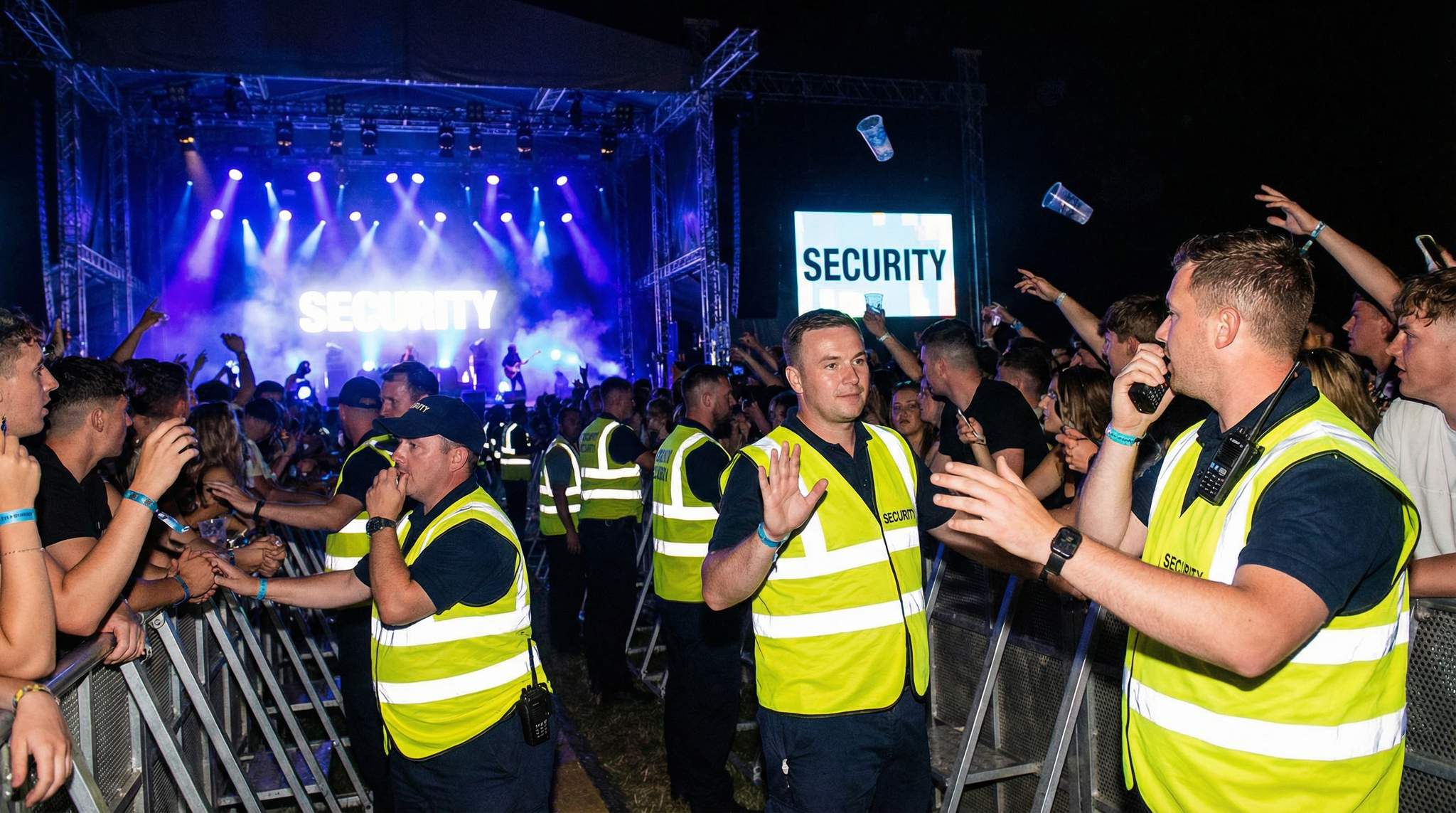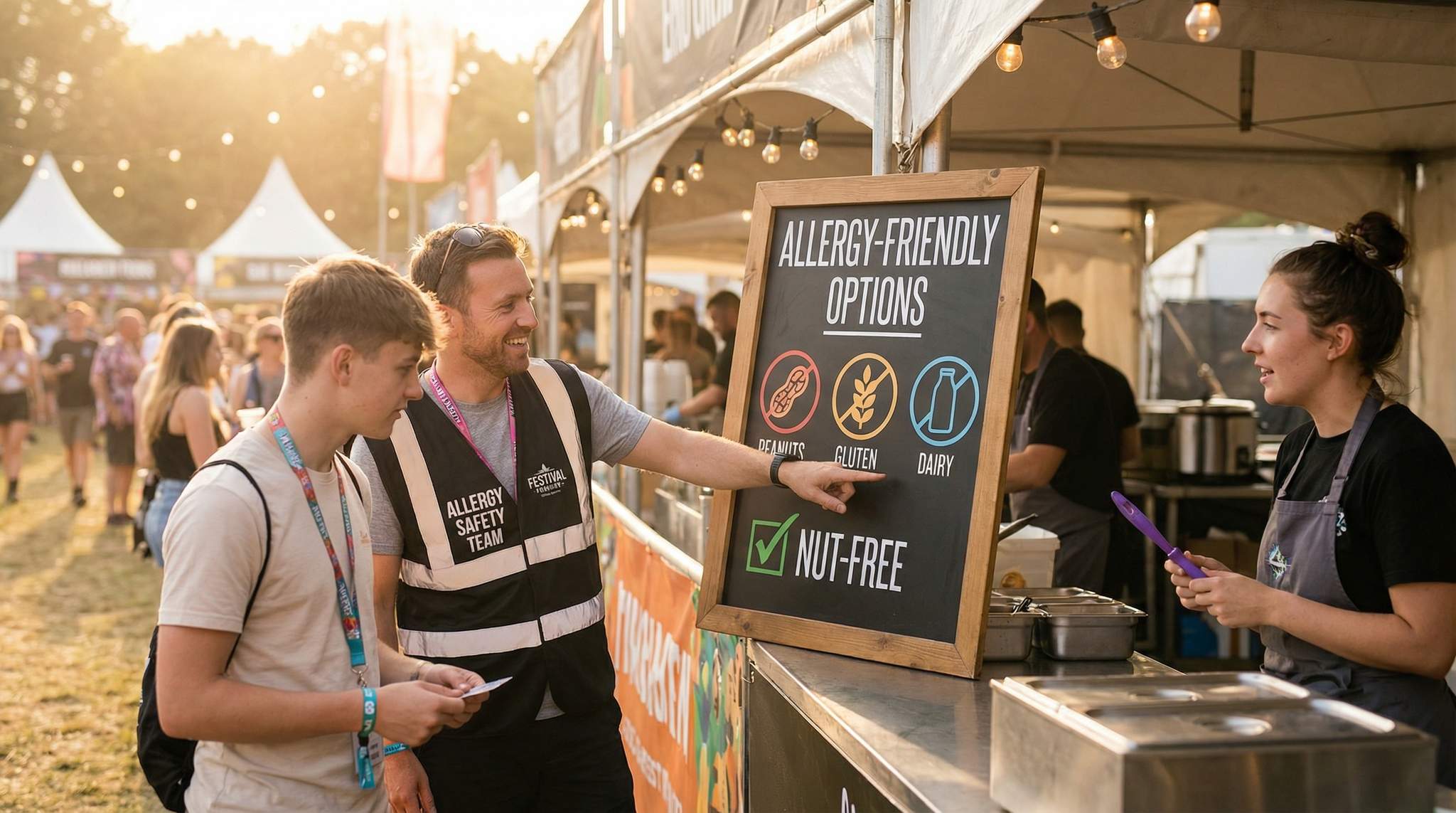Why Volunteer Recognition Matters
Volunteers are the lifeblood of cultural festivals around the world. These individuals give their time, energy, and passion for free – often in exchange for nothing more than a t-shirt, a meal, and the love of the event. Yet without volunteers, many festivals simply could not happen. It’s no surprise that some events openly acknowledge this truth; for example, the Toronto International Film Festival (TIFF) tells its volunteers, “without you, there will be no TIFF,” a sentiment that aligns with strategies for volunteer joy at boutique festivals. Recognition is the primary “currency” volunteers receive – it’s how organisers show appreciation and motivate volunteers to return year after year, ensuring short shifts and clear scripts lead to big thanks. In fact, driving volunteer retention is invaluable for festivals: experienced returnee volunteers require less training, can help mentor new recruits, and often become enthusiastic ambassadors for the event in their communities, which is crucial when managing volunteer programs for long summer festival days. Experienced volunteers act as ambassadors for the event in their communities, a key benefit of well-structured volunteer programs for long summer days.
On the other hand, if volunteers feel ignored, exploited, or unappreciated, they will disengage and may not return. There are many cautionary tales in the events world of volunteers dropping out at the last minute or underperforming because they felt disrespected, a scenario discussed in festival volunteer programs rooted in care. A festival can’t afford to lose half its volunteer team mid-event due to preventable dissatisfaction, emphasizing the need for festival volunteer programs rooted in care. In short, valuing volunteers isn’t just a nice gesture – it’s essential risk management and a cornerstone of continuity. Festivals that foster a culture of appreciation tend to see high volunteer return rates. For instance, many volunteers at the Galway International Arts Festival in Ireland come back every summer; one long-time volunteer noted she keeps returning because of the strong sense of organisation, community, and belonging among the team, reinforcing the value of festival volunteer programs rooted in care. By recognising volunteers in meaningful ways, festival producers build loyalty and keep that hard-won experience within the festival family.
Below are actionable strategies to recognise and reward festival volunteers so that the gratitude truly lasts. From public thank-yous to career opportunities and celebrating long-term service, these practices help ensure volunteers feel valued – and excited to rejoin the crew for the next festival.
Thank Volunteers Publicly – On Stage and Online
One of the simplest and most powerful ways to honour volunteers is public recognition. This starts during the festival itself. Festival organisers should make a point to thank volunteers by name on stage at a prime moment, when the crowd and community can acknowledge them. At many events, it’s become a tradition for the festival director or MC to give a shout-out to the volunteer team during closing announcements or right before the headline act, a practice that supports volunteer joy at boutique festivals. For example, an MC might say, “Let’s hear it for the amazing volunteer crew who made this weekend possible!” – prompting cheers from the audience. At smaller community or boutique festivals, organisers sometimes even invite all volunteers up on stage for a round of applause or call out outstanding individuals by name for special recognition, often seen where organisers prioritize volunteer joy at boutique festivals. Hearing their own name announced in front of a cheering crowd is a thrill for volunteers and validates the hard work they put in.
Public gratitude shouldn’t end with the festival’s final act. Online recognition extends the thanks to a wider audience and creates a lasting record. After the event, it’s a great idea to post thank-you messages on social media and the festival’s website highlighting volunteer contributions, further enhancing volunteer joy at boutique festivals. Many festivals share a group photo of the volunteer team with a caption praising their hard work. If the volunteer pool isn’t too large, listing each volunteer’s name in an appreciation post or on a “Thank You Volunteers” page costs nothing – but means a great deal to those individuals, contributing to volunteer joy at boutique festivals. Some events maintain a “Volunteer Hall of Fame” on their website or include a credits section in the festival programme booklet honouring long-time volunteers. Also consider tagging volunteers or allowing them to share these posts; it amplifies the appreciation and shows potential future volunteers that your festival truly values its team.
Tip: Make gratitude an ongoing part of your festival’s culture, not just a one-off gesture. Encourage stage hosts, artists, and staff to mention and thank volunteers whenever appropriate. Feature volunteer stories or spotlights in newsletters and community forums. Public acts of gratitude not only make the volunteers feel fantastic; they also signal to the whole community that volunteerism is valued, which can attract more helpers for the next year by establishing festival volunteer programs rooted in care.
Provide Certificates and References as Lasting Credentials
Beyond applause and speeches, it’s important to give volunteers something tangible for their service. Certificates, credentials, and reference letters are invaluable forms of recognition that volunteers can carry into their future. Many experienced festival producers make it standard practice to provide each volunteer with an official certificate of appreciation after the event, a key element of festival volunteer programs rooted in care. This isn’t just a generic thank-you note – a good volunteer certificate will detail the volunteer’s role, the number of hours or days they contributed, and even highlight particular skills or accomplishments (for example, “Customer Service and Guest Assistance – 15 hours” or “Green Team Volunteer – helped divert 500 kg of waste from landfill”). Such documentation serves as proof of experience that volunteers – especially students or young professionals – can add to their CVs or portfolios, a benefit of festival volunteer programs rooted in care. It shows future employers or educational programmes that the individual has real-world experience in events, teamwork, problem-solving, and more. For the festival, creating certificates is a relatively low-cost gesture (often just a template with digital signatures or prints), but it greatly increases the long-term value a volunteer gains from helping out.
In addition to certificates, offering to be a reference for volunteers can have a lasting impact on their career journey. Festival organisers and department leads should be willing to write recommendation letters or serve as references for volunteers who did a great job, as recommended in festival volunteer programs rooted in care. For instance, if a volunteer applies for a job in event management or hospitality, having the festival’s volunteer coordinator or production manager vouch for them can significantly strengthen their application. Let your volunteers know that you are happy to confirm their roles and contributions to prospective employers or even write a short reference highlighting their strengths (reliability, communication, leadership, etc.). These gestures cost the festival nothing but time, yet they carry enormous goodwill. They show volunteers that the festival isn’t just extracting free labour – it’s invested in their personal development and future success, a principle of festival volunteer programs rooted in care. Some festivals formalise this by preparing a standard reference letter on request for any volunteer who completes a full festival commitment, printed on official letterhead and signed by the organisers.
By providing credentials and references, festivals turn a short-term volunteer stint into a stepping stone for the volunteer’s career. This kind of recognition lasts well beyond the festival itself, and volunteers will remember that the organisers cared about their growth. In turn, they’re more likely to volunteer again or recommend the opportunity to friends, because it wasn’t just fun – it was professionally rewarding too.
Create Pathways from Volunteering to Paid Roles
One of the most powerful ways to recognise dedicated volunteers is by opening doors for them. Many of today’s top festival staff and producers actually started out as volunteers, learning the ropes from the ground up, a progression encouraged in festival volunteer programs rooted in care. Festivals that provide a clear pathway for volunteers to move into paid or higher-responsibility roles send a strong message: stick with us, and there’s room for you to grow. This strategy can dramatically boost retention, as ambitious volunteers see a future for themselves with the event.
In practice, a “volunteer-to-staff” pipeline can take many forms. Identify high-performing volunteers who show leadership, reliability, and passion, and encourage them to take on more each year. For example, an outstanding stagehand volunteer might be invited to become a zone leader or area supervisor at the next festival, possibly with a small stipend or honorarium. Over time, that could lead to a paid stage manager or coordinator position. Some festivals formalise this progression: the legendary Glastonbury Festival in the UK has long partnered with Oxfam to staff its gates and stewarding positions with volunteers, and quite a few of those volunteer stewards have later joined Glastonbury’s paid operations team in subsequent years, illustrating the success of festival volunteer programs rooted in care. By letting volunteers know that there’s an opportunity to progress – perhaps to seasonal staff jobs or future job openings – organisers give motivated volunteers a concrete incentive to return and excel, a strategy found in festival volunteer programs rooted in care.
Even if a permanent job can’t be offered to every volunteer, consider pathways like internships, apprenticeships, or leadership roles within the volunteer programme itself. For instance, a volunteer who has served for several years might be promoted to “Volunteer Team Leader” for a certain department, helping to train and coordinate newer volunteers. This not only recognises their experience but also gives them valuable management skills. Some events also partner with educational institutions so that long-term volunteers can earn academic credit or internship hours through their festival work.
Planning a Festival?
Ticket Fairy's festival ticketing platform handles multi-day passes, RFID wristbands, and complex festival operations.
A key part of creating pathways is communication. Let volunteers know during training and orientation that the festival values talent and commitment, and that many people on the current staff were once volunteers. Encourage volunteers to express their career interests or areas they’d like to learn about. An organiser might pair a keen volunteer with a senior crew member to shadow for a day, or invite committed volunteers to post-festival debrief meetings as a learning experience. When volunteers see a future in your festival, they’re far more likely to go above and beyond – and to stick with the event over multiple years. It’s incredibly rewarding for both sides: the festival gains passionate, experienced team members, and the volunteers gain career opportunities doing something they already love.
Celebrate Milestones and Outstanding Service
Recognition that truly lasts is recognition that evolves over time. Festival volunteers who come back year after year should feel their loyalty is celebrated. By marking milestones and exceptional service with special recognition, you not only reward those individuals but also inspire newer volunteers to envision a long-term relationship with the festival.
An effective approach is to celebrate volunteer anniversaries and multi-year contributions. Just as companies honour employees who’ve been with them 5, 10, or 20 years, festivals can do the same on an appropriate timeline (given that festivals are typically annual events). For example, when a volunteer hits their fifth year of helping with the event, the organisers might present them with a unique gift or award at the end-of-festival gathering – perhaps a plaque, a special-edition festival poster signed by the team, or a different colour volunteer t-shirt denoting their veteran status. Some festivals give out long-service pins or badges that volunteers can collect and wear each year as a point of pride. This kind of milestone reward not only thanks the volunteer for years of dedication but also creates a bit of friendly aspiration among newer volunteers (“I can’t wait to get my 5-year pin!”).
Annual volunteer appreciation events are another cornerstone of lasting recognition. South by Southwest (SXSW) in the USA and the Sydney Gay and Lesbian Mardi Gras in Australia both organise full-fledged volunteer parties and award nights to celebrate their teams. Even on a smaller scale, a festival could host a simple post-event thank-you dinner or party exclusively for volunteers each year, which is essential for volunteer programs for long summer festival days. At this gathering, organisers can take time to spotlight a few volunteers for exceptional contributions. Awards can be fun and tailored to your event’s personality – think “Volunteer of the Year,” “Rookie of the Year,” “Heart of the Festival,” or humorous superlatives that highlight unique contributions (as long as they’re in good taste). Publicly announcing these awards, complete with a small trophy or certificate, gives volunteers something to strive for and proudly cherish. The Sydney Mardi Gras Volunteer Awards Night mentioned above is a great example: it not only honours those who went above and beyond, but it builds an ongoing tradition that volunteers look forward to each year, a hallmark of festival volunteer programs rooted in care.
Don’t forget to celebrate the collective achievement too. Reiterate milestones like “This year our 200 volunteers gave over 1,000 hours of service” or “A dozen volunteers have been with us for over a decade.” Including these stats in newsletters, press releases, or on stage highlights the scale of volunteer contributions. It helps volunteers see the big picture of what they’re part of, which can be very motivating. Some events publish a volunteer impact report at year’s end, sharing stories and statistics to show how volunteer efforts made a difference (for instance, number of attendees served, funds raised for charity, or sustainability goals met). This demonstrates that the festival doesn’t take their work for granted – it actively measures and applauds it.
By celebrating both individual and group milestones, festivals create a sense of tradition and continuity. Volunteers start to feel like each year of service is an accomplishment in itself. When newcomers see long-time volunteers being honoured, it reinforces that volunteering isn’t just a one-off task but can be a rewarding journey spanning many festival editions. That continuity is pure gold for a festival: it means each year you retain institutional knowledge, build a stronger community, and reduce the scramble for new volunteers.
Need Festival Funding?
Get the capital you need to book headliners, secure venues, and scale your festival production.
Building a Continuity of Community Through Appreciation
Ultimately, recognition builds continuity. When volunteers feel genuinely appreciated and see personal benefits from their involvement, they keep coming back. Over time, a core of veteran volunteers forms – people who know the event’s history, understand its values, and can help train the next wave of helpers. This continuity is what transforms a festival’s volunteer crew into a true community.
Experienced festival organisers observe that a positive volunteer experience tends to snowball into greater reliability and retention, as noted in discussions on festival volunteer programs rooted in care. Furthermore, a positive volunteer experience fosters a sense of camaraderie and belonging among the team, a sentiment echoed in festival volunteer programs rooted in care. If volunteers have fun, feel cared for, and gain something meaningful each time, they’re likely to sign up again and even recruit their friends. On the flip side, if they feel like free labour that’s unacknowledged, they may fade away – leaving the festival short-handed and constantly having to train fresh people. In one survey highlighted by Volunteer Ireland, many organisations “fail to retain volunteers because [the volunteers]do not feel valued or involved,” a challenge addressed by festival volunteer programs rooted in care. In the context of festivals, losing passionate people due to lack of recognition is an easily avoidable problem.
By implementing lasting volunteer recognition practices – public thank-yous, certificates and references, growth pathways, and milestone celebrations – festivals invest in the human infrastructure that supports their event. These efforts pay off in higher return rates and a more dedicated, skilled volunteer team. Each returning volunteer becomes a building block of continuity: their knowledge and enthusiasm set the tone for newcomers and can elevate the event experience for attendees. Long-time volunteers often become informal mentors on the ground, catching problems early and upholding the festival’s standards without needing heavy supervision.
Moreover, a strong culture of appreciation enhances the festival’s reputation. Volunteers who feel like part of the family are likely to speak highly of the event in the community and on social media, attracting more volunteers and even attendees. It creates a virtuous cycle: recognition leads to retention, retention leads to a richer festival community, and that community spirit leads to a better festival.
Above all, treat volunteers not as disposable extra hands but as essential team members and stakeholders in the festival’s success. Show them respect, gratitude, and opportunities to grow. When appreciation is sincere and consistent, it cultivates a volunteer team who not only return year after year but also encourage others to join and uphold the festival’s legacy for years to come.





